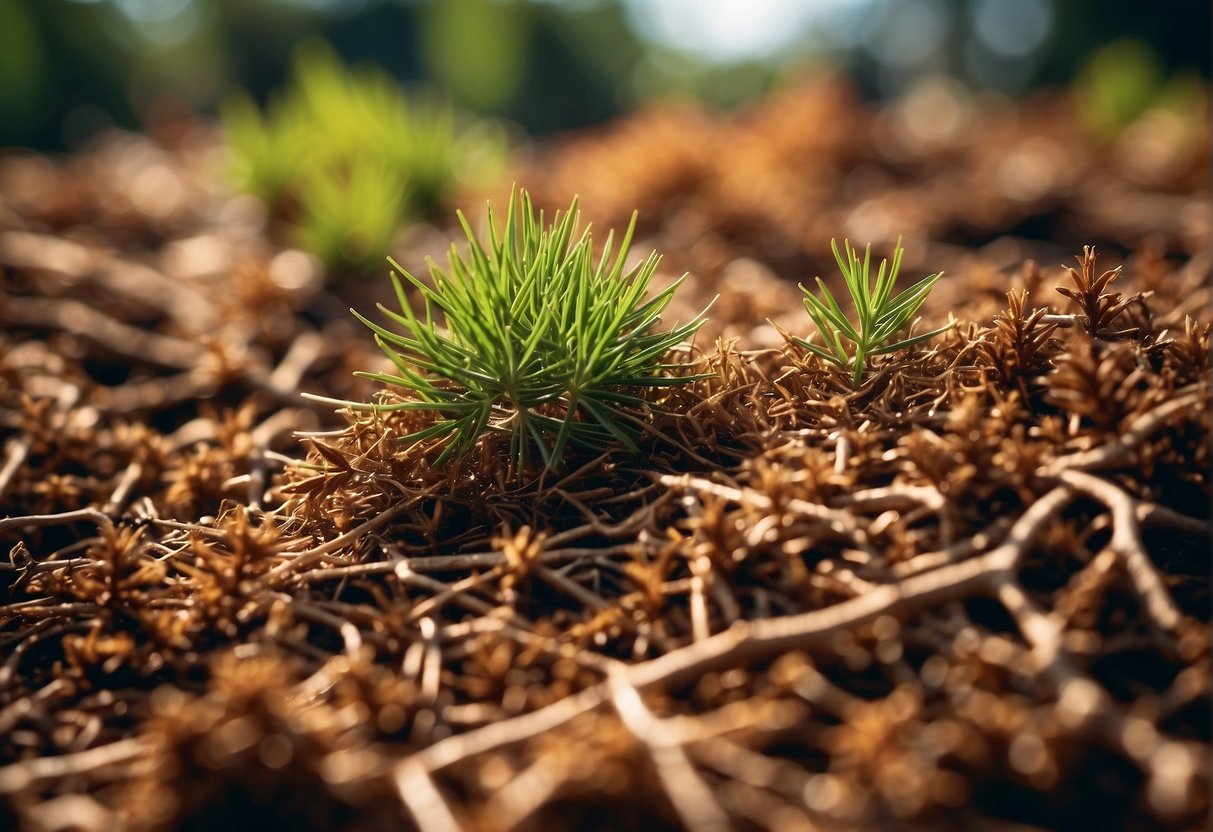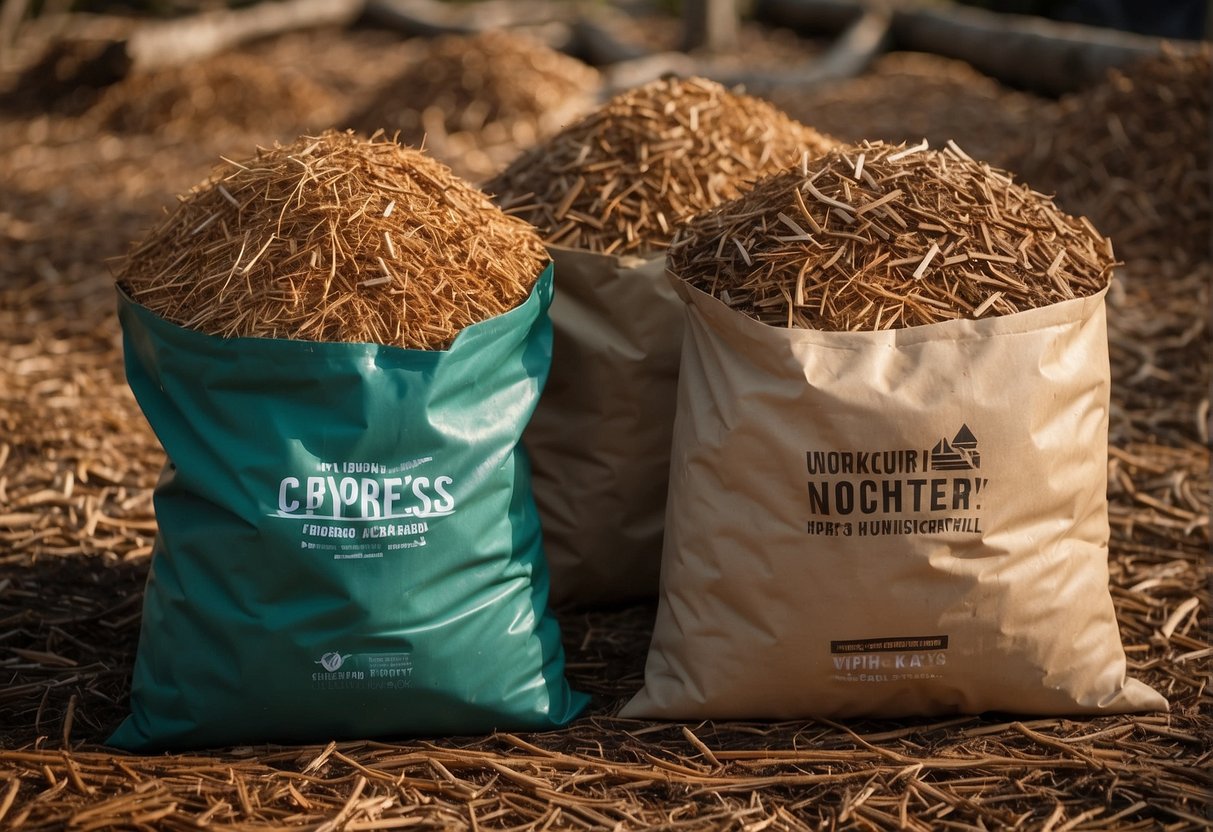Mulching is an essential practice in gardening and landscaping that provides numerous benefits, such as moisture retention, temperature regulation, and weed suppression. When selecting mulch, gardeners often choose between organic materials, with cedar and cypress being two popular wood-based options. Understanding the characteristics of these mulches is critical for making an informed decision that aligns with our gardening goals and values.

Cedar mulch is known for its pleasant fragrance and natural oils that can repel insects. Its rich color adds aesthetic appeal to garden beds, and it breaks down over time, contributing beneficial nutrients to the soil. Conversely, cypress mulch, which is derived from the wood of cypress trees, possesses properties that make it a heavy-duty option, well-suited for areas prone to erosion. However, the sustainability of cypress mulch has been a growing concern due to the depletion of cypress forests.
As we consider our options, we weigh the environmental impacts, functionality, and long-term effects on our garden’s health. Both cedar and cypress mulch serve as effective barriers against weeds and help conserve soil moisture, yet they differ in their environmental implications and performance in certain conditions. It is our responsibility as gardeners to choose a mulch that not only meets our immediate needs but also aligns with our commitment to environmental stewardship.
Comparative Analysis of Cypress and Cedar Mulch

In evaluating cypress versus cedar mulch, we focus on their distinct environmental impacts, physical properties, and specific plant health implications.
Material Origins and Environmental Impact
Cypress mulch is sourced from cypress trees, primarily native to wetlands in the southeastern region of North America. These trees are occasionally harvested from sensitive ecosystems, a procedure that can ultimately contribute to deforestation and ecological disturbances. On the other hand, cedar mulch is often produced from byproducts of lumber processing, thus potentially presenting a more sustainable option.
Physical Properties and Effects on Landscaping
Cedar mulch usually boasts a rich color and appealing fragrance which can enhance the aesthetic appeal of a landscape. Its texture is comparatively fine, allowing it to knit together well, creating an effective barrier against weeds. Cypress mulch, meanwhile, tends to have a heavier texture, which can provide superior erosion control on slopes. Both types of mulch offer good insulation for plant roots, but cedar can be less likely to harbor harmful insects such as ants or termites.
Benefits and Drawbacks for Plant Health
Both cypress and cedar mulches contribute to moisture retention in soil, benefiting plant health by reducing the need for frequent watering. Cypress mulch can sometimes be too effective in repelling water, making it harder for water to reach plant roots. Cedar mulch, conversely, decomposes at a measured rate, enriching the soil with nutrients and fostering an environment that is conducive to beneficial insects and plant growth.
| Feature | Cypress Mulch | Cedar Mulch |
|---|---|---|
| Origin | Wetland cypress trees | Lumber byproducts |
| Environmental Impact | Potential deforestation | More sustainable use of resources |
| Texture | Heavy, can reduce soil erosion | Fine, mats together for weed control |
| Moisture Retention | High, may repel water | Balances moisture retention and soil aeration |
| Insect Repellence | May attract termites | Natural oils deter most insects |
| Nutrient Addition to Soil | Slower decomposition, lower nutrient yield | Adds nutrients through decomposition |
| Soil Insulation | Provides good insulation | Provides good insulation, prevents weed growth |
Practical Considerations for Gardeners

When deciding between cypress and cedar mulch for gardens, we must consider factors such as cost-efficiency, maintenance needs, and potential health impacts.
Cost-Efficiency and Availability
Cypress mulch is typically more affordable, making it an attractive option for gardeners working within a budget. We find that its availability can vary based on regional resources, but it is generally accessible in areas where cypress trees are native.
Maintenance and Longevity
In terms of maintenance, cedar mulch stands out. Its natural oils provide a longer lifespan because they resist decomposition and repel insects. We recommend it for gardeners looking for a durable mulching solution that requires less frequent replacement.
Safety and Allergies
Cedar’s strong aroma is not only an effective insect repellent, but may also be concerning for individuals with allergies. We’re careful to choose cypress mulch in spaces frequented by people with sensitivities, although its lack of insect-repelling properties can be a trade-off.
Comparison Table of Cypress vs. Cedar Mulch:
| Feature | Cypress Mulch | Cedar Mulch |
|---|---|---|
| Cost | More affordable | Higher priced |
| Availability | Region-dependent | Widely available |
| Durability | Decomposes faster | Long-lasting |
| Maintenance | Higher frequency | Lower frequency |
| Insect Repellent | No | Yes |
| Risk for Allergies | Lower | Higher |
| Flammability | Less flammable | Flammable |
We always weigh these considerations carefully to ensure that our choice aligns with the needs of our gardens and the well-being of its visitors and inhabitants.